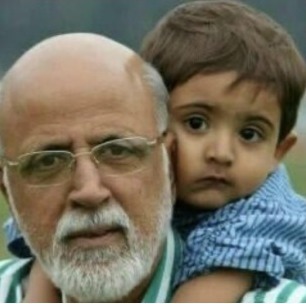By: Owais Amin Lone
It has been over five years since Article 370 was abrogated by the Parliament. This move, though celebrated in many parts of India, sparked mixed reaction from the people of Jammu and Kashmir. Many questions were raised regarding its legality and morality of the process. However, these debates were laid to rest after the Supreme Court upheld its validity, although many eminent jurists have criticized the decision.
Recently, there has been lot of talk about the restoration of Article 370, mainly from local political parties. Many have even campaigned on this issue during assembly elections. Aga Ruhullah Mehdi, the Member of Parliament, remains a staunch supporter of its restoration, even after elections. However, he has failed to present a clear roadmap for how it can be achieved. So, the pertinent question arises: Is the restoration of Article 370 even possible, or is it merely a political strategy to gain sympathy?
We all know that the Parliament is the only authority to amend and add a new Article(s) in the Constitution, therefore, has the power to restore Article 370. However, the real obstacle is not only the numbers but also the political will, which directly depends on the will of the people of this country. So, which political party is willing to restore it?
The Bhartiya Janata Party (BJP), which championed the abrogation, has firmly ruled out any possibility of its restoration. The statement of Amit Shah, “Article 370 is history and has been buried forever,” makes his party’s stance clear. The Indian National Congress (INC), while occasionally sympathetic in its tone, is unlikely to take such a step if it comes to power in future. The reason is clear – public sentiment outside Jammu and Kashmir has largely supported the abrogation, and any attempt to reverse it would alienate voters nationwide. Such a move would jeopardize the party’s electoral prospects across the country, something the Congress cannot afford.
This is why its President Mallikarjun Kharge clarified that the party does not endorse the restoration of Article 370 and declared it as a ‘closed chapter’. Next, the Aam Aadmi Party (AAP), which has made its debut in the state assembly poll by winning one seat, is no different. This is the same party which supported the abrogation and even voted in favour of downgrading State of Jammu and Kashmir to a Union Territory – despite its long-standing demand of statehood for Delhi.
This double standard highlights their opportunism and therefore will also not support its restoration. If any national political party dares to take the risk of restoring Article 370, it would be nothing short of political suicide. Such a move would alienate voters across the rest of the country, ensuring that the party would never return to power again. With no major political party willing to take such political risk, the restoration of Article 370 appears highly improbable.
The only remaining possibility was a judicial overturn, but that too was ruled out when the Supreme Court upheld its abrogation, and later even dismissed the review petition. Then why is there so much talk about its restoration? Is there any other way out or is it just a political mirage crafted to gain sympathy?
The author is an LL.M. student at Indian Law Institute, New Delhi.



